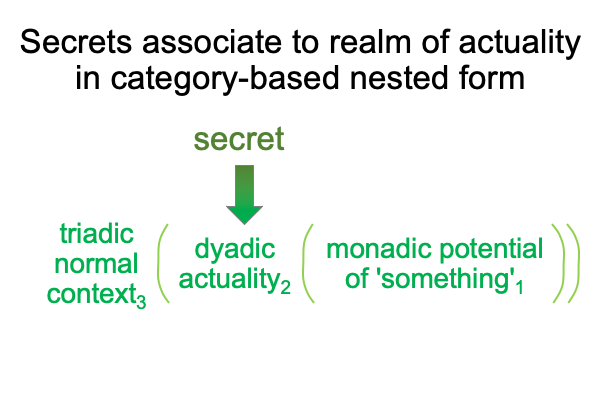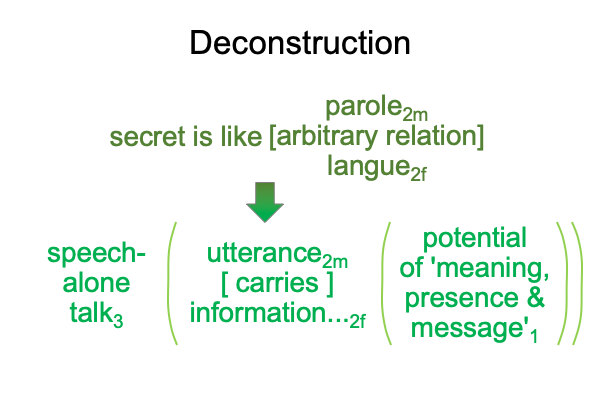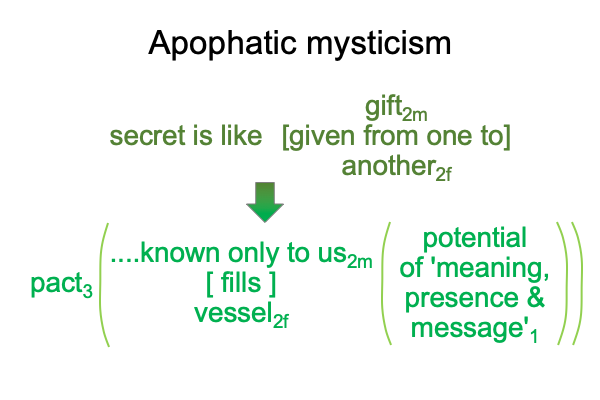0007 Derrida claims that apophatic mysticism… and also deconstruction?… is like a secret. Secrets have the character of actuality. A secret contains information known only to us. There are two real elements, depending on the normal context, such as the speaker and the hearer, everyone else and us, the whispered statement and the information it carries, and so on. That means the substance changes with normal context.
Here is a picture of a secret entering into the slot for actuality2 in a category-based nested form.

0008 For deconstruction, a secret2 occurs in the normal context of speech-alone talk3. An utterance is parole2m. The information that it carries is langue2f. Langue2f and the information2f are rapidly and intuitively constructed. Meaning, presence and message1 spontaneously come to mind. So, the secret requires a certain conspiracy. Each party must speak the same mother tongue. If the parties do not speak the same tongue, then they cannot whisper a secret to one another.
Of course, deconstruction knows how to shake the wheels of any secret2 just enough that the possibilities inherent in meaning, presence and message1 begin to… um… go out of whack. The conceptual apparatus1 breaks down.
That is the game that Derrida plays.
0009 Here is how deconstruction considers secrets.

0010 For apophatic mysticism, a secret2 is like a gift given from one to another. The gift extends a trust. The recipient is not to betray the giver. So, the normal context of the secret is a pact3. A pact3 binds one person to another.
Theologically, the pact3 is between the Creator and the created. Preparation is necessary. The preparation ensures that the adept knows that “he” is an empty vessel, a creature, who cannot create “himself”. Indeed, the adept has already received the gift of natural life. Now, the goal is to receive the gift of supernatural abundance.
0011 And, what is supernatural abundance?
Well, superabundance is all about the potential of ‘meaning, presence and message’1, but not in a way that is vulnerable to Derrida’s deconstruction. How so? The apparatus1 is not conceptual. The apparatus1 is inceptual. And, this is where Heidegger comes in. Heidegger’s philosophy promotes inceptual thought, along the same lines as apophatic mysticism. That means, the normal context3 and the potential1 are outside of explicit abstraction and its conceptual apparatuses.

A secret contains information known only to us.
